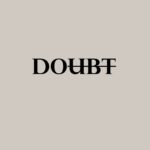Spending money has never come easily to me. I’ve been tucking dollars safely into my bank account since I was 15 when I began working my first minimum-wage job at a dry cleaner’s down the street from my high school. I remember limiting myself to one Starbucks iced coffee per week, which I sipped in a sweltering car because I deemed air conditioning an unaffordable extravagance. I can’t remember a time when I didn’t have money anxiety. I always recognized money as a source of stress, something to be saved, hoarded, and carefully guarded.
I want to acknowledge right away that I’m speaking from an extremely privileged financial position. All of my basic needs have always been met, and I have almost always been able to afford luxuries like $5 lattes on top of those basic needs. However, I’ve learned that my anxiety about money lives independent of my true financial situation.
In spite of consistent employment and a healthy savings account, my minimum-wage habits have followed me into adulthood. I avoid going out to eat, and when I do, I typically order one of the cheapest items on the menu. Shopping briefly overwhelms me with guilt. My anxiety forces me to perform mental acrobatics to justify purchases—I really needed new boots; there’s a hole in my old pair. When I’m sick, I refuse to see the doctor because I don’t want to pay a copay, or worse, pay for medication. I’m willing to compromise my comfort, satisfaction, and even health in the name of saving money.
Not everyone my age shares my frugality (friends have called me less flattering words, like “cheap” and “stingy”). I have friends who rack up credit card debt buying clothes, plane tickets, and cocktails. I know many people who eagerly await their paychecks with empty bank accounts each month, unafraid to let their balances dip towards zero. These friends don’t seem to feel the same financial anxiety as I do.
Where Money Anxiety Comes From
Countless articles counsel my spender friends on how to save money, draw up budgets, and curtail their occasionally excessive spending. Their mindsets are by no means uncommon. But I’ve also met other people like me who feel genuine fear and anxiety about money. As far as I can tell, the difference between the two spending profiles doesn’t seem to source exclusively from class disparity. It seems to have little to do with how much money a person actually has and more to do with early experiences. For our generation, those early experiences were likely misshapen by the Great Recession of 2008.
If your parents lost their jobs, your family’s home was foreclosed on, or you were expected to take on financial independence at an earlier age due to the recession, you likely developed a scarcity mentality, not unlike survivors of the Great Depression. If you, at a formative age, noticed that your parents were anxious about money, that anxiety likely seeped into your understanding of how to spend. Like me, you probably avoid spending money even when plenty sits idly in your bank account, even after carefully contemplating an expense and determining it worthwhile. You may be afraid of investing, traveling, and nonessential purchases. Your heart may beat faster when you hand over your credit card, and you may feel hot when you see a total on a register, even a sum that falls comfortably within your budget.
Economists and sociologists have documented millennials’ thrifty habits. We’ve been called the “go-nowhere generation” for our reluctance to travel and the “cheapest generation” for our failure to buy big-ticket items like cars and homes, things our parents had already purchased by the time they were our age. This cautious spending can represent clear benefits, like our tendency to start saving for retirement sooner than our parents did, but it can also cause us to miss out on important life experiences.
What to Do About Money Anxiety
Budget
Fortunately, there are ways to manage this money anxiety, and one solution looks remarkably similar to the advice for our overspending counterparts. I often find that my anxiety stems from an exaggerated idea of how much I’m spending. If I spend money on a non-necessity, like new clothes, I immediately feel out of control. To regain that sense of control, I find logging all of my purchases helpful. When I add up my monthly spending, the sum usually never reaches anywhere near my inflated expectation. If you’re a chronic saver, it can be helpful to keep constant tabs on your spending with an Excel document you update every day or two. A budget can prevent your fear from drowning out your monetary reality.
Acknowledge Irrational Thoughts
A second solution is to acknowledge your money anxiety for what it is – somewhat irrational. Just because your parents lost their jobs or their home during a particularly precarious time in U.S. history does not mean that the same will happen to you. Be realistic about your saving practices. If you’re building a retirement fund, an emergency fund, and a savings fund for short- and long-term goals, you can spend leftover money guilt-free. Even if you haven’t established those funds yet, you should still allow yourself some extra space in your budget for nonessentials. The items you’re considering purchasing will likely bring you more joy than the money they cost.
Shift Your Perspective
Finally, if you’re young and childless like I am, try to recognize this stage of life as a unique opportunity. As we get older, most of us will begin to acquire the pressures of new expenditures. We’ll pay for weddings and mortgages, and we’ll financially support children and aging parents. But right now, we live free of those responsibilities. Even if you’re paying off student loans or credit card debt, your current financial burdens likely weigh lighter than they ever will. Take advantage of this time to travel, attend concerts, and enjoy occasional indulgent restaurant meals. You can always earn more money, but you can’t relive your twenties.










